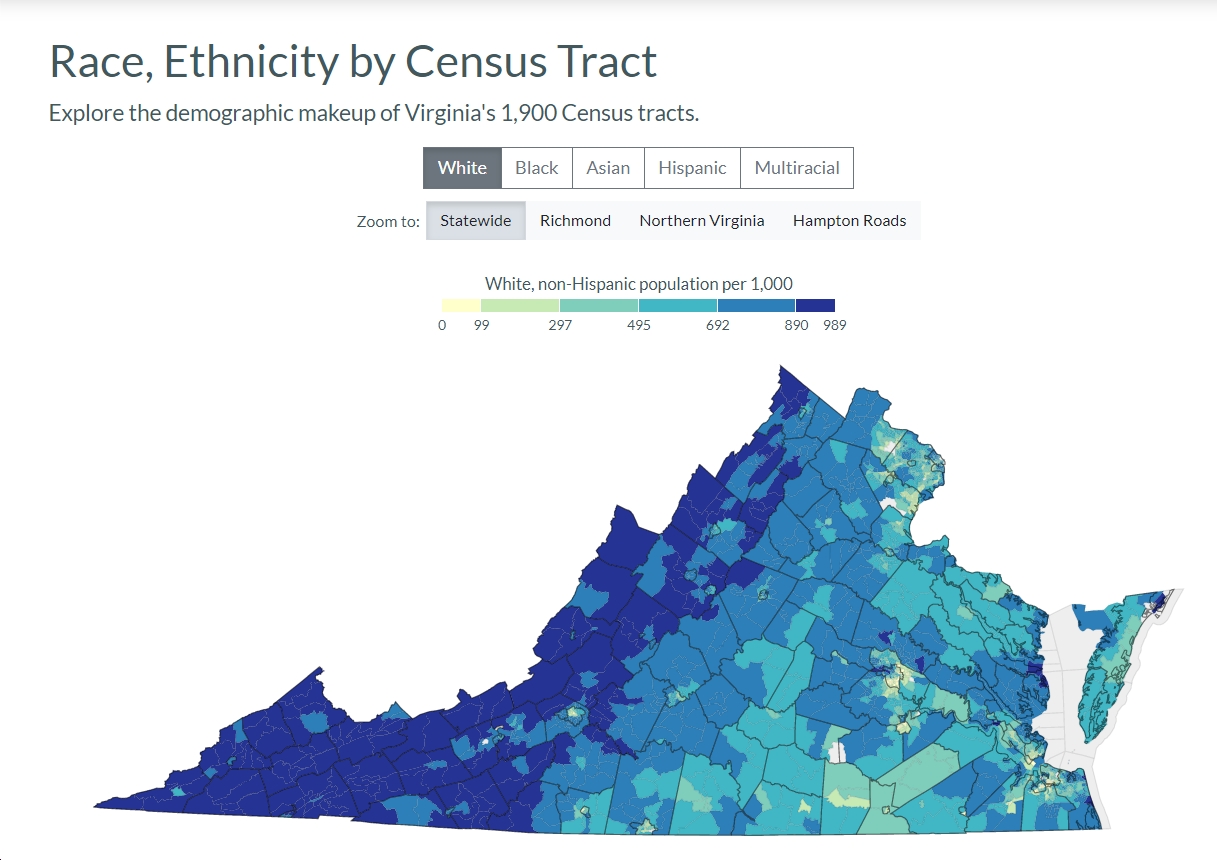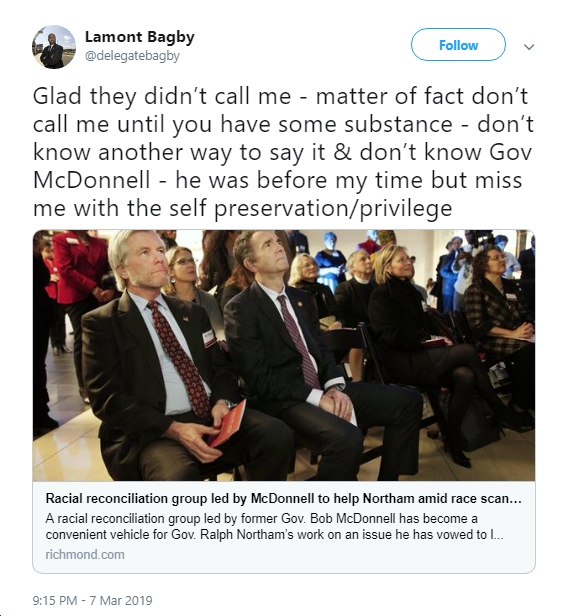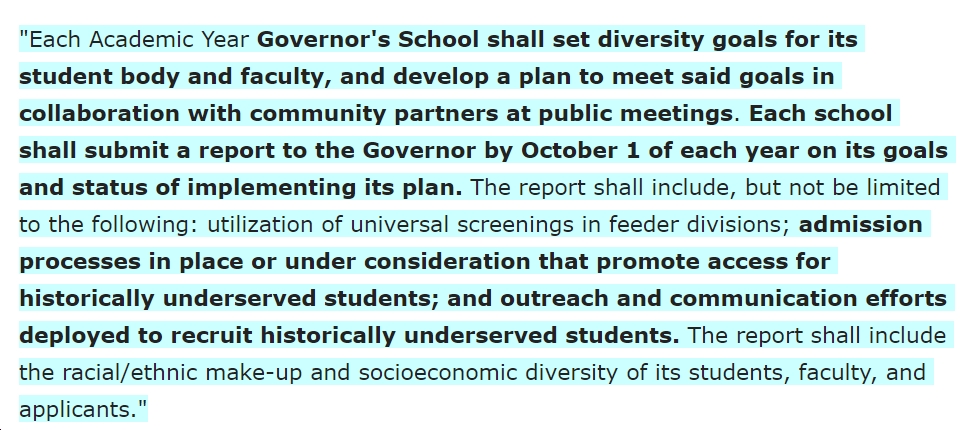Things got very emotional this afternoon in the Virginia State Senate during the debate over HB1537 (“Provides that a locality may remove, relocate, or alter any monument or memorial for war veterans located in its public space, regardless of when erected”), before the bill eventually passed, 21-17, on a party-line vote.
First, Sen. Lynwood Lewis (D-Accomack) explained that “this bill is destined for conference” and moved that the Senate pass the bill, which he said now has “plenty of notice provisions and guardrails for the process of local control over these monuments.”
Next, Sen. Jennifer Kiggans (R-Virginia Beach) spoke about how she’s “lost sleep” over this issue, then talked about the Vietnam War Memorial and how it makes her “sad to know that American war monuments for some evoke feelings of outrage and hatred,” and how she believes “all history should be studied so it is learned from and its hard-taught lessons are not repeated.” Kiggans added that war monuments “help educate future generations about past conflicts...preserve a space for solemn reflection in congested areas,” etc. Kiggans argued that Civil War memorials are “in most cases…dedicated to deceased veterans who fought for their homeland and died or were wounded alongside their hometown friends.” She urged that we not “divide the good people of Virginia any further than we already have by vilifying things associated with our precious American history.” She claimed this bill is “divisive, not healing” and urged rejection of the bill. Seriously?!?
In response, Sen. Mamie Locke (D-Hampton), spoke next, explaining that “what was divisive and not healing was the erection of monuments that were not necessarily erected immediately following the Civil War, but were erected in direct defiance of individuals who were enslaved…as symbols of hatred…as symbols of Jim Crow…as symbols of defiance…at a time when, in the 1950s…” Locke then choked up and said, “I can’t do this.”
Sen. Jennifer McClellan (D-Richmond) took it from there, explaining:
“I think you all are witnessing the pain that some of these monuments inflicted on Virginia’s black community. When they were put up, many of them were put up right after Reconstruction as part of a ‘Lost Cause’ narrative and a backlash to the social, economic and political rise of the black community. Others were put up in response to Brown v Board as part of the ‘massive resistance’ movement…It was very clear to the Richmond African-American community that [the erection of the Robert E. Lee statue on Monument Avenue] was more than just honoring a soldier and a veteran and those who died during the war. It was the beginning of a narrative that was used by some to put blacks back in their place. And many of these monuments continue to cause that pain. And the decision about what to do with those monuments…should be in the communities where those monuments are, not here just in Richmond…This is a very difficult but necessary conversation. If Virginia is ever going to heal from the trauma that occurred beginning 400 years ago…like any family, we have to talk about that trauma, how it affected everyone, how it continues to affect everyone, how it continues to fester until it blows up in Charlottesville. Because when you don’t talk about trauma, it doesn’t go away, it simmers until it can’t be held back anymore…These need to be conversations in the community…If we don’t do this now, when are we going to do it, when are we going to have that conversation, and when are we going to heal as a Commonwealth? Because I’m going to tell you want…everybody in my family, and Sen. Spruill’s family and Sen. Lucas’ family and Sen. Locke’s family has a story about the trauma inflicted upon them solely because of the color of their skin. And some of these monuments trigger that trauma for every single one of us. We can’t ignore that. We cannot ignore that. We need to begin the healing process, and ignoring this conversation…is not going to do it.”
Great stuff. Unfortunately, McClellan was followed by the far-right Sen. Amanda Chase (R), who blathered about how, supposedly, “symbols are just that, they are symbols, and what may mean hurt and pain to one person can mean that is someone else’s grandfather…or family member…that doesn’t mean that that person is only known for that one sin of slavery; that person also had many accomplishments that were good. It was a culture and a period of time which [slavery] was an accepted practice…it was evil, but it doesn’t mean that we take all of these monuments down. We remember our past and we learn from it, we don’t erase it…We shouldn’t just tear them down just because there are some in this body that just the symbol of that person evokes negative emotions…We need to learn from history, not erase it…We have to be tolerant of everyone.” WTF?
Sen. Ghazala Hashmi (D-Richmond) said she fully agrees we need to remember our history, “but I don’t think we need to commemorate those who led to that trauma; commemoration and remembrance are two entirely different things.” Hashmi noted that she teaches the history of slavery the Civil War, and that she’s “never once taught the history of slavery and the Confederacy through monuments that were erected in the Jim Crow eara in an attempt to intimidate and to consolidate power.” Exactly!
Sen. Locke then rose again, said “I think I’m ok now” and said, “I think it’s ok to teach tolerance, but I don’t think it’s ok to teach revisionist history.” Sen. Locke talked about working as an archivist, and how every day she had to walk by these monuments…”I celebrated Jefferson Davis’ birthday as a state holiday…celebrated Robert E. Lee’s birthday every year as a state holiday…to the point that my tolerance level evaporated and I quit the job.” Then she moved to Atlanta to another archivist job, “where somehow…history stopped for them in 1960…they didn’t even have anything in that institution about Martin Luther King…they dedicated everything to Gone with the Wind, which was fictional, and you would have thought that Scarlet O’Hara was real…I had had enough of revisionist history.” She talked about her visit to Ghana, stood in the Door of No Return and thought that there were ships “with many Africans down in that hold who traveled the Middle Passage…maybe one or two ancestors of mine may have been on one of those ships…at the very least, that ancestor survived…the Middle Passage…the horrors of slavery…the horrors of Jim Crow…the horrors of segregation…allowed me to survive the horrors of walking by those stupid monuments that had been erected for a Lost Cause…They were erected to say to me, to Jennifer McClellan, to Lionell Spruill, to Louise Lucas, to you Mr. President, that your lives don’t really matter to me….that you were the reason why we fought this war and that you don’t matter…” Brilliant and spot-on.
Then, Sen. Chap Petersen (D-Fairfax) spoke in support of the bill, referencing how he values learning from his colleagues, discussing his own family’s long history in Virginia (including having “a Confederate past”). According to Petersen, he was convinced he was going to vote against this bill, “but when I listen to my colleagues, it is a process and it’s going to have to play out, and a dialogue requires both sides…I recognize what Sen. Locke says…what Sen. McClellan says…this is a journey, let all people talk, we all have stories…We’re going to move this bill forward…We’re coming to grips with the history...the bottom line is this is part of a journey, and we’re going to take a step on this journey and we’re going to hold hands on this journey as brothers and sisters.”
Finally, LG Fairfax associated himself with Sen. Locke’s comments, noted his own family history and how he carries the “legacy of slavery in the Commonwealth of Virginia every day when I write my last name…My family has lived with the trauma of slavery for generations, but has overcome it in so many ways…I hope that you understand that this is a situation that is so much deeper than a simple vote on simple war memorials.” Fairfax added that it has been “amazing and ironic and shocking, the fact that we repeat the racist mistakes of the past with no irony and no self awareness and no courage to speak up.”
A few seconds later, the bill passed on a party-line, 21-17 vote, with two Republicans (Bryce Reeves and Tommy Norment) not voting at all. Great that the bill passed, but apparently, Republicans didn’t absorb a word of what was just said by Senators Locke, McClellan, Hashmi and Petersen. Sad.


![Virginia NAACP: “This latest witch hunt [by the Trump administration] against [GMU] President Washington is a blatant attempt to intimidate those who champion diversity.”](https://bluevirginia.us/wp-content/uploads/2025/07/gmuwwashington.jpg)














